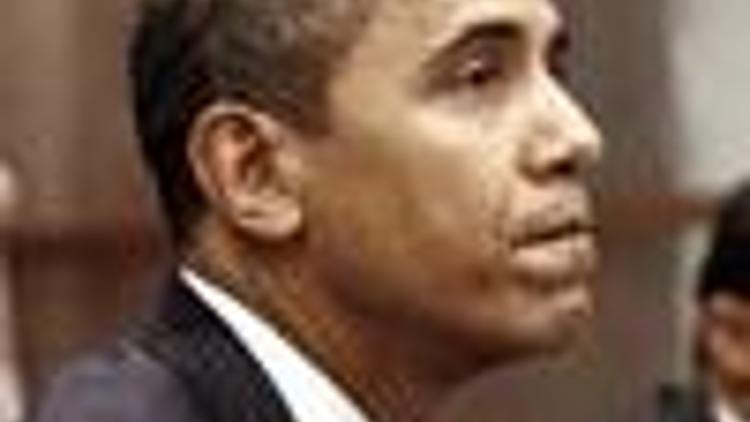Obama confronts grave distractions
Güncelleme Tarihi:

WASHINGTON - US President-elect Barack Obama faces distractions at home in various realms including his pick of an intelligence team and his Senate replacement. Obama also aims to maintain a bipartisan backing for an economic stimulus package
With his inauguration less than two weeks away, Barack Obama faced distractions over his choice of an intelligence team, his Senate replacement and evidence Congress can't act as quickly as hoped on a massive economic stimulus package.
In his first week in Washington, Obama is focusing on securing bipartisan support for a sweeping and costly economic plan aimed at pulling the United States out of recession.
To a public wary of government spending, Obama is offering a salve with economic stimulus package: the promise of long-term fiscal discipline.
Budget-conscious lawmakers are pressing Obama to embrace deficit-reduction goals even as he promotes a spending and tax cutting plan - expected to cost about $775 billion - to jolt the economy out of its downward spiral.
Budget reform
Obama on Tuesday vowed to "bring a long-overdue sense of responsibility and accountability to Washington" and called the need for budget reform "an absolute necessity."
As Hürriyet Daily News & Econmic Review went to press yesterday, Obama was expected to announce his selection of a chief performance officer, a White House official who will work with federal agencies to set performance standards and hold agency managers accountable for progress.
This is likely to reassure Republican and Democratic fiscal conservatives who are worried about the near $1 trillion price tag for a stimulus package.
Meanwhile, Obama was to join the three living former presidents, Bill Clinton, George H.W. Bush and Jimmy Carter, for a lunch at the White House hosted by President George W. Bush. It will be the first time all the living presidents have gathered at the White House since 1981.
Bush and Obama were also to meet privately for roughly 30 minutes in the Oval Office before the lunch. That one-on-one meeting, coming just 13 days before Obama's inauguration, is more likely to zero in on grim current events, with war in the Gaza Strip and the U.S. economy in a recession.
"It's going to be an interesting lunch," Bush told an interviewer recently. When asked what the five men would talk about, Bush said: "I don't know. I'm sure (Obama's) going to ask us all questions, I would guess. If not, we'll just share war stories."
As Congress opened for business Tuesday, Obama promised he would forbid lawmakers from inserting pet projects into the massive economic stimulus plan. But at the same time, Obama warned that the U.S. could face trillion-dollar deficits for years go come. Eight years ago the federal budget ran a surplus; the deficit on Sept. 30 was about $455 billion.
Obama has been meeting this week with congressional leaders to try to get the legislation ready for his signature shortly after his swearing in. He has predicted lawmakers would approve it within two weeks of his taking office Jan. 20, though he had earlier hoped the legislation would be ready for him to sign as soon as took over leadership.
Compounding that distraction was the ugly bit of political theater that unfolded in Congress on Tuesday when the Senate barred Roland Burris from taking Obama's vacated Illinois Senate seat. Burris was appointed by the state's embattled governor, Rod Blagojevich, who stands accused of trying to sell the position to the highest bidder.
Speaking to a mob of reporters who had followed him across the street for a news conference in a cold and steady rain outside the Capitol, the former Illinois attorney general said he was "not seeking to have any type of confrontation." Burris also said he was considering a federal lawsuit to force Senate Democrats to seat him. But even as Democrats refused to allow Burris to be sworn in, Democratic Sen. Dianne Feinstein, head of the Senate Rules Committee, said seating him was the legal thing to do.
Obama defends his pick
Meanwhile, Obama defended his reported pick to head the Central Intelligence Agency, Leon Panetta, as "one of the finest public servants that we've had," likely in answer to grumbling from some members of Congress that the former chief of staff in the Clinton administration is inexperienced in national security issues.
News of his selection struck sour chords from Feinstein, the incoming Intelligence Committee chairwoman. She complained about Panetta's lack of intelligence experience and Obama's failure to consult with her on the decision.

